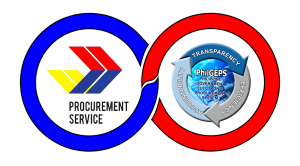A credit score assesses a borrower’s creditworthiness using prior financial interactions. It goes from 300 to 850, with a higher score indicating that you are more likely to pay your bills on time and increasing your likelihood of being approved for the lowest possible rate of interest on a loan. When requesting for a loan in the Philippines, banks often need physical assets as collateral. Let’s find out more about the Credit Information Corporation in the Philippines!

Credit ratings are increasingly being used as a way of obtaining finance independent of collateral. Borrowing money is now simple if you have an excellent debt payment and financial track record. This is a major changer for the credit sector as it attempts to shift the lending environment away from asset-based lending and toward risk-based lending1, allowing Filipinos easier access to credit.
What is a Credit Score?
According to the data contained in your credit report, your credit rating is a three-digit number that represents your creditworthiness or capacity to repay a loan. In a nutshell, one figure may make or dissolve your financial standing.
What is a Good Credit Score?
In the Philippines, credit scores vary from 300 to 850, with 850 constituting the highest grade. Your credit score should be as good as possible. Landing around the 650-699 or 700-759 range is also a viable option. Anything less than this is considered a poor or terrible credit score. Banks, insurance providers, and other financial entities use credit scores to determine the creditworthiness of a borrower risk, among other things.
What is the CIC?
The Credit Information Corporation (CIC), established under Republic Act 9510 or the Credit Information System Act, is the Philippines’ only consolidated registration of credit data. The CIC is granted permission to acquire, combine, and disseminate credit information with all of the country’s financial institutions. Banks, cooperatives, insurance companies, and telecommunications providers provide their clients’ credit histories to the CIC, which compiles the data into thorough credit reports. The CIC provides credit reports to authorized lenders.
Why is a Good Credit Score Important?
When considering whether or not to lend money to someone, banks evaluate a number of variables. Aside from the financial information provided on a loan or credit card application, banks also consider a borrower’s credit record and credit score when determining their capacity to repay a debt. To acquire the bank’s trust, you must demonstrate your dedication and responsibility to repay your debts on schedule. As proof, use an excellent credit score in
the Philippines.
Credit Scoring
There is no universal procedure for calculating credit scores. Depending on the type of loan or financial service sought by the borrower, lending institutions employ a range of scoring methods. When calculating a credit score, the credit payment past and the amount owing are usually the most important factors.

Credit Score vs. Credit Report vs. Credit History
Your rating of credit, credit report, and credit history are all interconnected yet distinct. At the same time, credit history is an individual’s capacity to repay loans over time. It describes how you utilize finance and how reputable a borrower you are. Your credit rating will also depend on how well you handle your finances across individual transactions and in business.
A credit report is a detailed account of all financial activities, such as loans and utility subscriptions. It includes financial data like balances and missing payments, as well as individual data like name, TIN, SSS/GSIS number, home address, and profession. In the Philippines, it is the foundation for calculating one’s credit score.
How to Check Your Credit Score Online
Accredited Credit Bureaus, also known as Special Accessing Entities (SAEs), are private organizations that are permitted to access CIC’s credit data and provide credit information services like credit reports and credit ratings.
Step 1
Visit creditinfo.gov.ph, the website of the Credit Information Corporation.
Step 2
On the site, choose the Services tab and then Request Your Credit Report.
Step 3
You must supply a valid ID (passport, driver’s license, etc.) as well as your personal data (full name, birth date, and contact information).
Step 4
Examine the data you submitted and authenticate your registration.
Step 5
Select your selected date of appointment and provide the relevant personal information after getting an email confirming your successful registration.
Step 6
Wait for the email confirming your web-based character authentication appointment via Google Meet.
Step 7
Sign in to Google Meet for your planned online meeting with the CIBI in-house verifier.
Step 8
Use the CIBI payment channels to pay for the credit report. CIBI will send you an email with your credit report.
It is now simple and convenient to obtain your credit report and credit score. Begin monitoring your credit score early to establish a strong credit standing and optimize your advantages of financing.
How Often Is Your Credit Score Updated?
The credit information in the Philippines is determined at the time of the request or inquiry using the most recent information from the credit report. Participants must report frequent changes to their borrowers’ credit information within 30 days of it being accessible.
How to Improve Your Credit Score
It takes patience and careful preparation to reestablish a decent credit score. To improve your credit score, pay off any outstanding credit card or loan obligations. Reduce your credit card usage, make numerous payments, and pay beyond the minimum amount required to increase your credit limit. If you do this on a regular basis, you will see an improvement in your credit rating.
Although boosting your credit score will not happen quickly, the small steps you do now can make a big difference. It’s never too late to start being cautious with your cash flow now and get the benefits later. As an entrepreneur, a good credit score is vital for you. In acquiring investors or conducting business transactions like procurement, you must ensure that you keep your finances intact. One of the things you can do is operate your business strategically in a centralized platform. One example of this is Shoppable Business, a B2B eCommerce platform that helps direct buyers and sellers together.
Why Become a Buyer in Shoppable Business
- Wide product selection from different categories – a one-stop-shop solution for businesses’ procurement needs
- Save company time and money – Customized orders, RFQ for specific quantities, bundles, configuration, Track their orders, view purchase history.
- Need it now but limited budget – BNPL apply and get up to ₱150,000.00

Even if you’re not looking for a credit card or a loan, maintaining an excellent credit score in the Philippines may have a big influence. A strong credit score suggests financial dependability and accountability, which is why it is routinely checked by banking institutions, businesses, and even renters.
Hence make it a practice to check your credit score and credit information in the Philippines on a regular basis to determine whether you need to make changes to them. This also enables you to fix any mistakes, increasing your chances of being accepted for a mortgage, vehicle loan, individual loan, or credit card.









